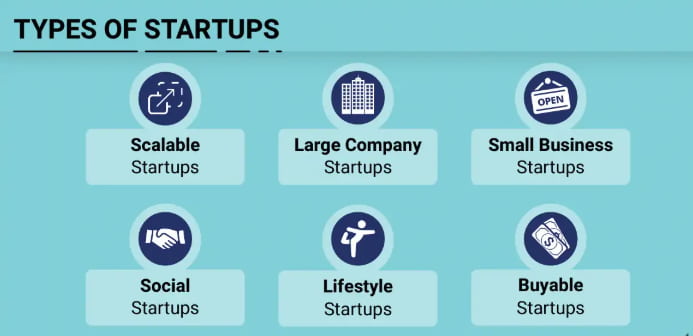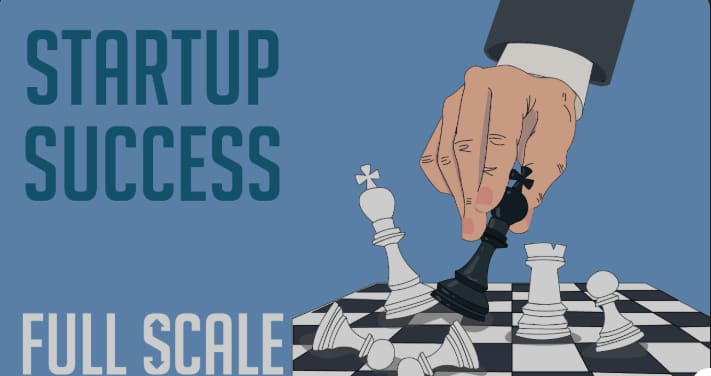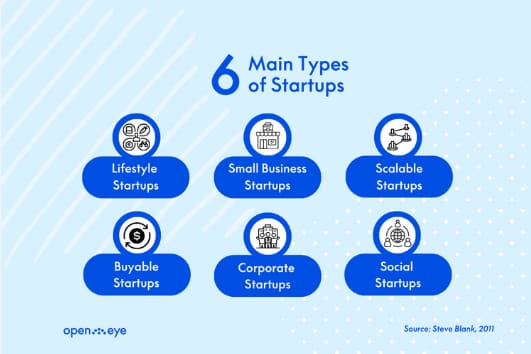Contents
Do you have a great idea in mind, want to be an entrepreneur but don’t know where to start? Or maybe you’re just curious about what’s going on in this dynamic world? This is where “startup examples” come to our rescue! The stories of successful ventures that started with a tiny idea and became giants both guide us and make us say “I can do it!” Because the best way to learn is to get inspired by the experiences of others, right?
The starting point of every startup is usually the need to “solve a problem“. Mobile applications developed to prevent users from wasting time, financial platforms that provide practical answers to DOWN PAYMENT needs, or brands entering the e-commerce sector with niche products find the key to success in identifying the real problems of the target audience and offering the right solution. These examples provide concrete lessons on how to structure the stages from the idea stage to the product and from the product to scalable growth in the entrepreneurial journey.

It is of great importance to examine successful examples in order to understand the startup ecosystem and get inspiration for your own project. In addition to globally renowned startups such as Uber, Airbnb or Getir from Turkey; young players such as unmanned market applications or digital health platforms that are rapidly growing in the local market show the paths to success in different markets. These examples reveal which strategies work, which mistakes to avoid and what to pay attention to during the growth process.
What Makes “Successful Startup Examples”?
Now you may ask, is every newly established company a startup? Actually, no, it is not. What makes a startup a “startup” is not just that it is newly established, but that it has certain characteristics. At its most basic, a startup usually solves an existing problem.
While solving this problem, it uses innovative, faster or more effective methods instead of ordinary methods. In other words, it does something that has not been done before in the market or does it much better.
Another distinguishing feature is its scalability potential. A startup must have the ability to grow its business model very quickly. Instead of staying local, it aims to reach much wider audiences in a short time.
They usually use technology intensively to ensure this scalability. Tools such as mobile applications, web platforms, artificial intelligence, and data analysis fuel their rapid growth.
But technology is not the only requirement. Sometimes a radical innovation in the business model or a genius in marketing strategy can also make an initiative a startup. What is important is to have the potential to go beyond traditional ways of doing business and achieve great growth momentum.

Global Startup Examples That Changed the World
Now let’s briefly talk about the startup examples that have made a splash worldwide. In the meantime, we recommend that you read our articles on startup investor presentations and why they went bankrupt. After all, the probability of such venture examples that angel investors pursue is also high. Now let’s look at the positive side and list the examples.
- There are startup examples that we all know well from the world stage, that have radically changed our lives. They have reshaped not only their own sectors, but also the way they do business in general and our habits. For example, Uber (or similar ones like Grab in our region) that have rewritten the transportation sector. They have completely digitized the taxi experience and demonstrated the power of the sharing economy.
- Airbnb, which has turned the accommodation sector upside down. They have popularized the idea of staying in people’s homes instead of hotels. They have changed the way we travel and find accommodation and emphasized the importance of focusing on local experiences.
- Netflix, which has radically changed entertainment consumption. They have moved away from the DVD rental business and revolutionized online broadcasting and producing their own content. We are no longer dependent on television broadcasts to watch series and movies, we can watch whatever we want whenever we want.
- Spotify, which changed the way we listen to music. Online music streaming has replaced physical albums or mp3 downloads. They have transformed the music industry’s business model and have become one of the main platforms connecting artists and listeners.
- And of course, Stripe, which has made online payments incredibly easy. They have allowed developers to easily integrate payment infrastructure into their websites or applications. They have played a quiet but revolutionary role in the spread of e-commerce and online business. These global giants show how effective solving a big problem, being visionary and thinking globally can be.

Not Just Tech: Examples from Different Fields
When we say startup examples, we may immediately think of a mobile application or website. But in fact, the startup spirit can manifest itself in many different areas beyond technology. What is important is the innovation and growth potential, not the tool used. For example, there are companies that are revolutionizing the food sector and developing meat alternative products. With the increasing interest in plant-based nutrition, startups in this field are also growing rapidly.
Startups focused on sustainability and the environment are also increasing. Startups that develop technologies that facilitate recycling, waste management solutions, and renewable energy systems both benefit our planet and establish successful business models.
The field of educational technologies (EdTech) also offers a great opportunity for startups. Online learning platforms, personalized education solutions, and startups that develop new teaching methods make education more accessible and effective. The importance of this field has been understood even more with the pandemic.
Health technologies (HealthTech) also hosts startups that improve our lives. Areas such as telemedicine applications, wearable health devices, and the use of artificial intelligence in diagnosing diseases have the potential to increase access to and quality of healthcare services.
Financial technologies (FinTech) are transforming the banking and finance sector. Startups that develop easy payment systems, personal finance management applications, and new generation banking solutions are making financial transactions faster, cheaper, and more accessible. As you can see, you don’t just have to be a software developer to be a startup; it has the potential to revolutionize every sector!

What Successful Startup Examples Teach Us?
- So, what should we put in our pockets after looking at so many startup examples? There are very valuable lessons we can learn from these success stories. First and foremost: Everything starts with solving a problem. See the problems around you, try to understand what people need. That’s where the first seed of a startup idea lies.
- Second lesson: Just having a good idea is not enough, it is very important to build a strong team that will bring that idea to life. A team that is complementary, passionate, determined and able to work together can overcome the biggest challenges.
- Third lesson: Know your market and your customers very well. Knowing who you are doing what for and what their real needs are will help you develop the right product/service and determine the right marketing strategy.
- Fourth lesson: Be flexible and open to learning. The startup world is very dynamic. Plans can change, the market’s reaction may be different than you expected. The important thing is to learn from mistakes and change your business model (pivot) if necessary.
- And the last lesson: Be brave! Entrepreneurship requires taking risks. There is always the possibility of failure, but you can’t know until you try. Taking calculated risks and following your dreams is the most important step in this journey. These examples show how each of them overcame unique challenges and persevered to achieve their goals.

The Future of Startups and Technology
As you can see, the startup examples world is full of different, inspiring examples. Some have achieved success with technology, some with a different business model, and some by simply implementing a simple idea in a great way. There are global players from Türkiye, as well as those who have transformed world giants.
These examples show us that when you recognize a problem, come up with an innovative solution for it, and transform this solution into a scalable business model, you too can be a potential startup founder. Technology is a tool, what really matters is vision, team, and determination.
The lessons you will learn from these examples in your own venture are very valuable: Start with critical questions such as “Are you creating a solution to a real problem?”, “How well do you know your target audience?”, “What do you base your growth strategy on?”. Examine inspiring success stories and cook your strategy by avoiding similar mistakes. Remember, flexibility and openness to learning are the keys to long-term success in the startup world.
I hope these examples have inspired you. Maybe the next big success story will come from that brilliant idea in your mind! Come on, go ahead, look around, see the problems and take the first step to solve them! This world is always open to new and brave ideas!
